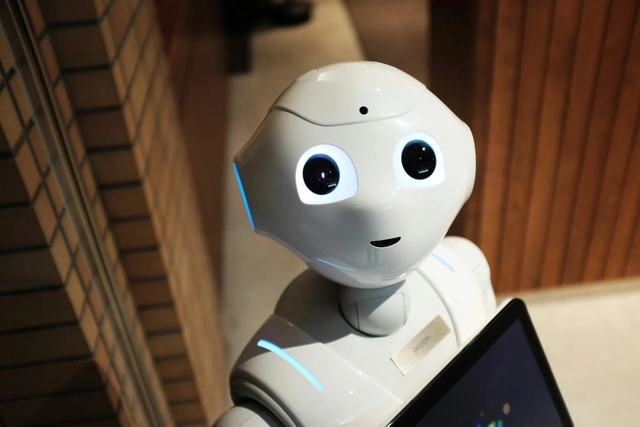Artificial Intelligence
A comprehensive guide to Artificial Intelligence and its implications
1. What is Artificial Intelligence?
Artificial Intelligence (AI) refers to the simulation of human intelligence in machines programmed to think, learn, and make decisions. These systems can perform tasks that typically require human intelligence.
- Definitions: AI is defined broadly, ranging from simple automated tasks to complex problem-solving algorithms. It encompasses subsets like machine learning, deep learning, and natural language processing.
- AI vs. Human Intelligence: AI replicates some cognitive functions like reasoning and problem-solving but lacks human qualities like emotion, consciousness, and creativity.
2. History of Artificial Intelligence
The development of AI spans decades, from theoretical beginnings to practical applications.
- Early Foundations: The concept of intelligent machines dates back to ancient myths, but modern AI began with the invention of computers in the mid-20th century.
- AI Winters: Periods of diminished interest and funding occurred when early AI failed to meet inflated expectations.
- Modern Resurgence: Advances in computing power, data availability, and algorithms have driven AI's recent successes.
3. Types of Artificial Intelligence
AI can be categorized based on functionality and capability.
- Narrow AI: Specialized systems designed for specific tasks, like voice assistants or recommendation engines.
- General AI: Theoretical AI capable of understanding and performing any intellectual task as a human would.
- Superintelligent AI: Hypothetical AI surpassing human intelligence in all areas, raising ethical and existential questions.
4. Applications of AI
AI is transforming industries and daily life through a variety of applications.
- Healthcare: AI assists in diagnosing diseases, developing personalized treatments, and managing healthcare operations.
- Finance: Used for fraud detection, algorithmic trading, and financial decision-making.
- Autonomous Vehicles: AI powers self-driving cars, enabling navigation, obstacle detection, and decision-making.
- Customer Service: Chatbots and virtual assistants enhance customer support by answering queries and automating tasks.
- Creative Arts: AI tools are used to generate music, art, and creative content.
5. Ethics and Challenges in AI
The growth of AI raises critical ethical and societal challenges.
- Bias in AI: Algorithms can reflect or amplify biases in training data, leading to unfair outcomes.
- Privacy Concerns: AI systems often rely on large datasets, raising concerns about data collection and user consent.
- Job Displacement: Automation may replace human jobs, necessitating adaptation and reskilling of the workforce.
- Autonomy and Control: Ensuring humans maintain control over powerful AI systems is crucial for safety and accountability.
6. Future of Artificial Intelligence
The future of AI promises both exciting opportunities and significant challenges.
- AI in Education: AI could personalize education, adapt curriculums, and assist teachers in fostering student success.
- Sustainable Development: AI has potential applications in optimizing energy use, monitoring climate change, and advancing green technologies.
- Collaboration Between Humans and AI: Partnerships between humans and AI may enhance productivity and innovation in diverse fields.
Summary
- Artificial Intelligence is the simulation of human intelligence in machines, enabling tasks like learning, problem-solving, and decision-making.
- AI is categorized into Narrow AI, General AI, and Superintelligent AI based on capabilities.
- Applications span industries, including healthcare, finance, autonomous vehicles, and creative arts.
- Challenges include ethical issues like bias, privacy, job displacement, and ensuring safety in autonomous systems.
- The future of AI holds potential for personalization, sustainable development, and human-AI collaboration.
References
- - Artificial Intelligence: A Modern Approach (Book by Stuart Russell and Peter Norvig)
- - What is Artificial Intelligence? (IBM AI Blog)
- - A Brief History of AI (Stanford University)
- - Types of AI (TechTarget)
- - AI Applications Across Industries (Forbes)
- - Ethics of AI (MIT Technology Review)
- - The Future of AI (World Economic Forum)
keywords: AI; machine learning; neural networks; automation; technology.
Partner Suggestion
Top 10 Healthy Recipes to Try

